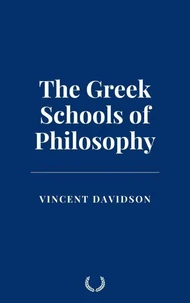This book explores Plato's critique of the Sophists, a group of itinerant teachers in ancient Greece known for their relativistic views on truth, ethics, and politics. While the Sophists taught that knowledge and morality were flexible, shaped by personal perception and social convention, Plato argued for objective standards of truth and virtue, accessible through reason and philosophical inquiry.
Through an analysis of Plato's key dialogues-including Republic, Gorgias, Protagoras, and Theaetetus-this book examines the fundamental philosophical divide between Plato and the Sophists on issues of knowledge, ethics, politics, and human nature. Plato's concept of the philosopher-king, his theory of the eternal Forms, and his dialectical method all serve as counterpoints to the Sophistic emphasis on rhetorical skill, adaptability, and success in public life.
By contrasting Plato's essentialism, which views human nature as intrinsically rational and oriented toward the Good, with the Sophists' skepticism, this book highlights Plato's belief that the pursuit of knowledge is a moral endeavor, one that transcends personal ambition and aligns the soul with universal principles of justice and virtue. The book concludes with a reflection on Plato's lasting impact on Western philosophy, considering how his critique of Sophistic relativism shaped the intellectual tradition that emphasizes objective truth, ethical responsibility, and the transformative power of knowledge.
Plato's vision remains relevant in contemporary discussions on education, ethics, and politics, offering a profound challenge to modern relativism and a reminder of the enduring value of truth and virtue in human life.
This book explores Plato's critique of the Sophists, a group of itinerant teachers in ancient Greece known for their relativistic views on truth, ethics, and politics. While the Sophists taught that knowledge and morality were flexible, shaped by personal perception and social convention, Plato argued for objective standards of truth and virtue, accessible through reason and philosophical inquiry.
Through an analysis of Plato's key dialogues-including Republic, Gorgias, Protagoras, and Theaetetus-this book examines the fundamental philosophical divide between Plato and the Sophists on issues of knowledge, ethics, politics, and human nature. Plato's concept of the philosopher-king, his theory of the eternal Forms, and his dialectical method all serve as counterpoints to the Sophistic emphasis on rhetorical skill, adaptability, and success in public life.
By contrasting Plato's essentialism, which views human nature as intrinsically rational and oriented toward the Good, with the Sophists' skepticism, this book highlights Plato's belief that the pursuit of knowledge is a moral endeavor, one that transcends personal ambition and aligns the soul with universal principles of justice and virtue. The book concludes with a reflection on Plato's lasting impact on Western philosophy, considering how his critique of Sophistic relativism shaped the intellectual tradition that emphasizes objective truth, ethical responsibility, and the transformative power of knowledge.
Plato's vision remains relevant in contemporary discussions on education, ethics, and politics, offering a profound challenge to modern relativism and a reminder of the enduring value of truth and virtue in human life.

 , qui est-ce ?
, qui est-ce ?